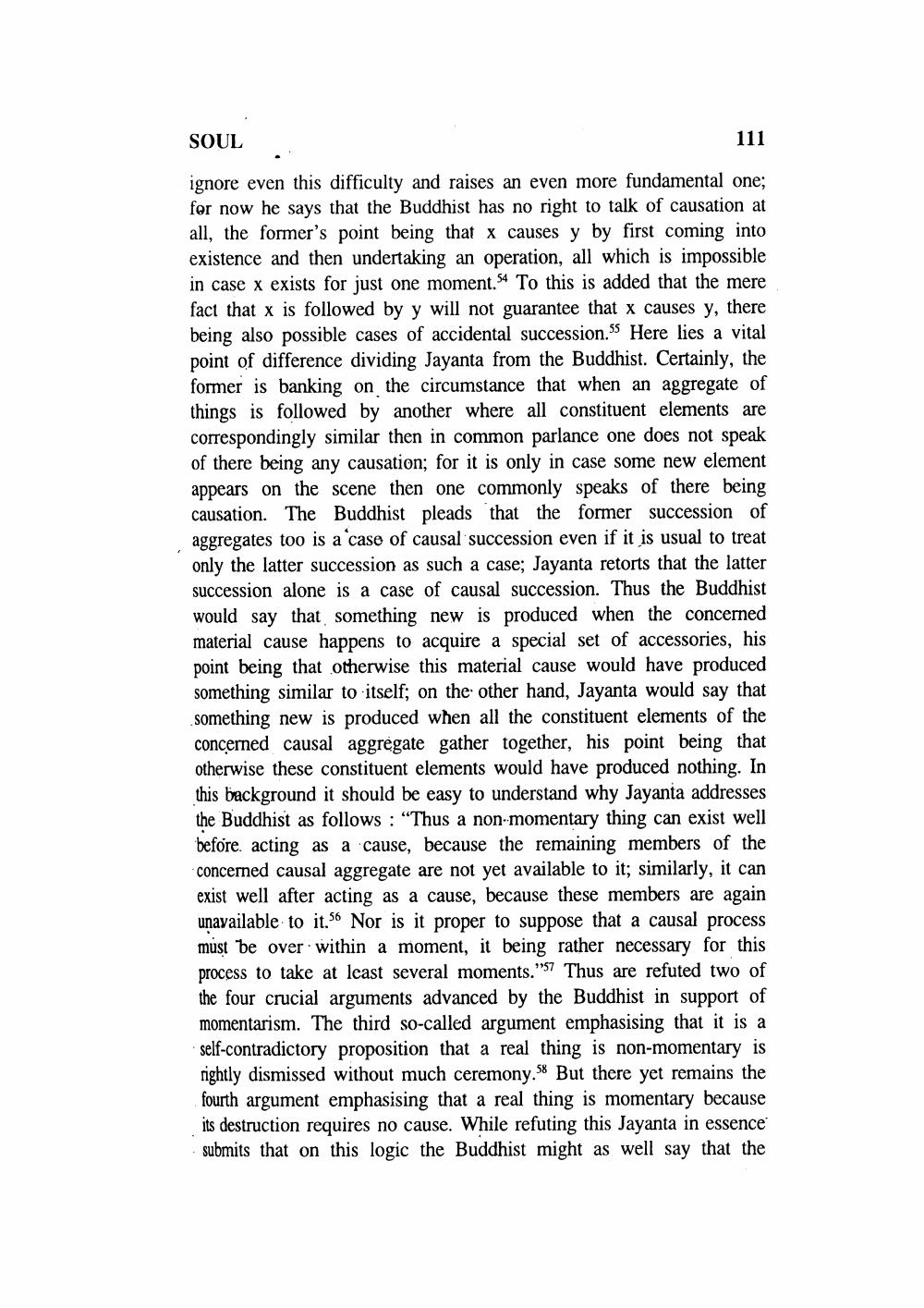________________
SOUL
111
ignore even this difficulty and raises an even more fundamental one; for now he says that the Buddhist has no right to talk of causation at all, the former's point being that x causes y by first coming into existence and then undertaking an operation, all which is impossible in case x exists for just one moment.54 To this is added that the mere fact that x is followed by y will not guarantee that x causes y, there being also possible cases of accidental succession. Here lies a vital point of difference dividing Jayanta from the Buddhist. Certainly, the former is banking on the circumstance that when an aggregate of things is followed by another where all constituent elements are correspondingly similar then in common parlance one does not speak of there being any causation; for it is only in case some new element appears on the scene then one commonly speaks of there being causation. The Buddhist pleads that the former succession of aggregates too is a case of causal succession even if it is usual to treat only the latter succession as such a case; Jayanta retorts that the latter succession alone is a case of causal succession. Thus the Buddhist would say that something new is produced when the concerned material cause happens to acquire a special set of accessories, his point being that otherwise this material cause would have produced something similar to itself; on the other hand, Jayanta would say that something new is produced when all the constituent elements of the concerned causal aggregate gather together, his point being that otherwise these constituent elements would have produced nothing. In this background it should be easy to understand why Jayanta addresses the Buddhist as follows: "Thus a non-momentary thing can exist well before acting as a cause, because the remaining members of the concerned causal aggregate are not yet available to it; similarly, it can exist well after acting as a cause, because these members are again unavailable to it." Nor is it proper to suppose that a causal process must be over within a moment, it being rather necessary for this process to take at least several moments."57 Thus are refuted two of the four crucial arguments advanced by the Buddhist in support of momentarism. The third so-called argument emphasising that it is a self-contradictory proposition that a real thing is non-momentary is rightly dismissed without much ceremony.58 But there yet remains the fourth argument emphasising that a real thing is momentary because its destruction requires no cause. While refuting this Jayanta in essence submits that on this logic the Buddhist might as well say that the




